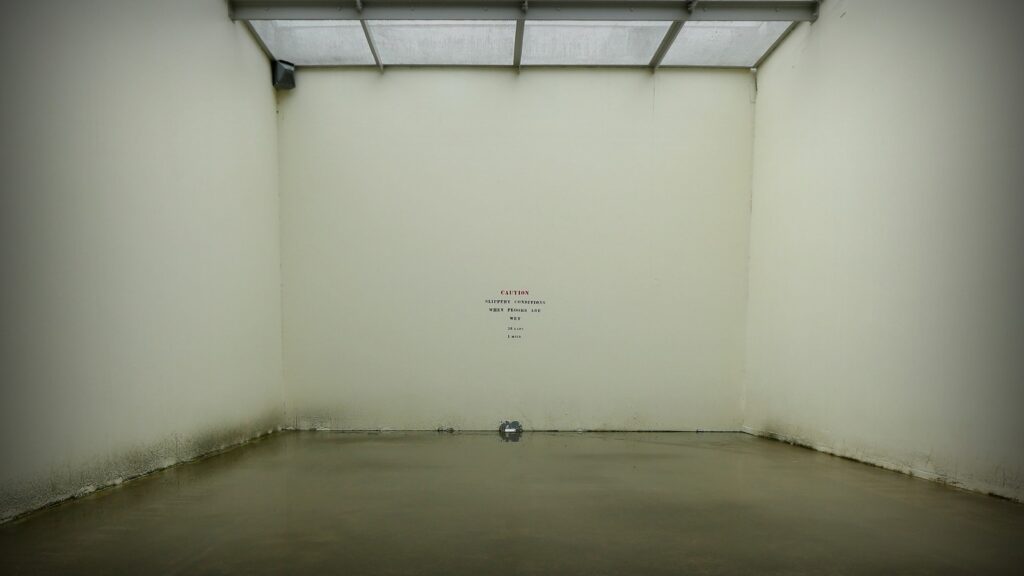The image of a person standing facing a wall, hands clasped behind their back, is a powerful one. It evokes feelings of isolation, shame, and regret. This seemingly simple act of confinement holds deep psychological weight, serving as a form of punishment that transcends physical restraint. This article delves into the multifaceted nature of wall punishment, exploring its definition, the profound effects it has on individuals, and its role within various disciplinary systems.
Wall Punishment Definition
Wall punishment, in its essence, is a disciplinary measure where an individual is confined to a specific location, typically facing a wall, for a predetermined period. This form of punishment restricts movement and interaction with others, creating a sense of isolation and detachment. While the specifics may vary depending on the context, the core principle remains consistent: physical confinement as a means of inducing introspection and remorse.
The severity of wall punishment can range from brief periods of silent reflection to prolonged solitary confinement. In some instances, it might be accompanied by additional restrictions, such as deprivation of food or water, further amplifying its psychological impact. Regardless of the specific parameters, the fundamental aim remains the same: to use isolation and confinement as a tool for behavioral modification.
Isolation and Confinement
The most immediate consequence of wall punishment is the imposition of isolation and confinement. Individuals subjected to this form of discipline are physically separated from their peers, deprived of social interaction and support networks. This enforced solitude can be profoundly unsettling, leading to feelings of loneliness, anxiety, and even despair.
Confinement within a limited space further exacerbates these feelings. The lack of freedom of movement and the constant awareness of physical boundaries can contribute to a sense of claustrophobia and powerlessness. The inability to engage in activities that provide stimulation and distraction can also lead to boredom and restlessness, compounding the psychological distress.
Psychological Effects
Beyond the immediate impact of isolation and confinement, wall punishment can have lasting psychological effects on individuals. The enforced introspection can trigger a range of emotions, including guilt, shame, regret, and self-doubt. The absence of external validation and support can amplify these feelings, leading to a sense of worthlessness and despair.
Furthermore, prolonged periods of isolation can disrupt cognitive function and impair emotional regulation. Individuals may experience difficulty concentrating, making decisions, and controlling their impulses. The constant state of anxiety and stress can also lead to physical health problems, such as insomnia, headaches, and digestive issues.
Remorse and Introspection
Proponents of wall punishment argue that it serves as a valuable tool for inducing remorse and introspection. By stripping individuals of external distractions and social support, they contend that this form of discipline encourages self-reflection and a deeper understanding of their actions.
The enforced solitude provides an opportunity to confront one’s mistakes, acknowledge the pain caused to others, and develop a genuine sense of regret. This process of internal examination, while often painful, can ultimately lead to personal growth and a commitment to positive change.
Disciplinary Action
Wall punishment has been employed as a disciplinary measure in various contexts throughout history, including prisons, schools, and military institutions. Its effectiveness as a deterrent and a means of rehabilitation remains a subject of ongoing debate.
Critics argue that wall punishment is inherently cruel and inhumane, inflicting unnecessary psychological suffering on individuals. They contend that it fails to address the underlying causes of problematic behavior and can actually exacerbate existing mental health issues. Advocates, however, maintain that when implemented judiciously, wall punishment can be an effective tool for promoting accountability and fostering personal growth.
Conclusion
Wall punishment is a complex and controversial disciplinary measure with profound psychological implications. While it may serve as a means of isolation and confinement, its effectiveness as a deterrent and a tool for rehabilitation remains debatable. The potential for inflicting unnecessary psychological suffering necessitates careful consideration and ethical guidelines to ensure that this form of discipline is not employed arbitrarily or without due process.



